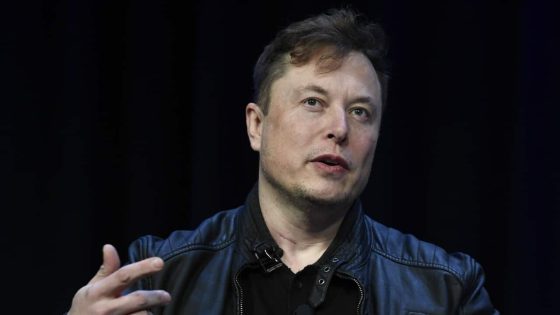A Kansas aerospace company may be proving that internal combustion doesn’t have to be a planet-warming concern.
Astron Aerospace has developed a hydrogen-burning engine that releases mainly water. That’s right, it’s a combustion engine with no heat-trapping fumes, according to a story on the tech from Interesting Engineering.
If the engine can be successfully scaled and adopted by motorists, it would provide a 60% efficiency rate that clobbers gas-guzzlers, which operate at around 20% to 40%, as noted by IE.
Would you be more likely to get an EV if it helped cut your energy costs?
Big time
Depends how much I’d save
Still a no for me
I already have an EV
Click your choice to see results and speak your mind
“We’re thrilled to reveal our groundbreaking engine technology designed to usher in a greener and more sustainable future,” Matthew Riley, the H2 Starfire engine’s inventor, wrote on the company website. The message is accompanied by the slogan, “The Race to Zero is Over!”
A 12-second video clip shows the engine in action, shooting flames out of the side as it operates with familiar engine sounds.
Astron also lists impressive perks for its prototype. The “unprecedented efficiency” is accompanied by a compact design, minimal friction, and low maintenance using fewer than 100 parts. The designers expect the engine to run for more than 100,000 hours between overhauls. In a perk for speed demons, throttle response is expected to be nearly “instantaneous,” all per the specs.
Most commercial hydrogen in the U.S. is made using dirty energy, according to the Environmental Protection Agency. Electrolysis is an alternative method utilizing electricity to separate hydrogen from water. It’s even cleaner when renewable sources provide the juice.
Watch now: Giant snails invading New York City?
Environmental watchdog Sierra Club only supports hydrogen that’s made with the latter technique. Heat and water vapor are the only byproducts when used in a fuel cell. But when combusted, hydrogen releases some nitrogen oxide. The club calls it a “harmful pollutant” in details included in a hydrogen fact sheet.
For its part, the U.S. Energy Department states that nitrogen oxide emissions can be reduced using “existing and emerging technologies.” The government has an entire program geared toward developing hydrogen as an alternative fuel. It’s even being vetted in Texas through a federal-backed operation.
At Astron, Riley sees his engine one day powering more than passenger cars.
“Our innovative solutions are set to transform the way heavy duty applications are powered, from municipal generators to heavy-duty commercial vehicles, marine industry vessels, aerospace industry systems, and agricultural machinery,” he wrote.
Battery tech is also rapidly improving in both the vehicle and energy storage sectors as the switch to cleaner options continues. You can save up to $1,500 a year by parking a gas-guzzler while also preventing thousands of pounds of heat-trapping air pollution — with lung-troubling potential — from hitting the atmosphere. Tax breaks of up to $7,500 for qualified new EVs are available for cars already at dealerships.
Other hydrogen breakthroughs are helping that fuel gain momentum, as well. San Francisco is testing ferries that run on the alternative power source, for example.
IE’s report indicates that more work needs to be completed before Astron’s prototype is powering cars. But the inventor is confident about the tech, and he is calling for others to become involved.
“Join us on the journey toward a greener and more powerful future,” Riley said on Astron’s website.
Join our free newsletter for weekly updates on the latest innovations improving our lives and shaping our future, and don’t miss this cool list of easy ways to help yourself while helping the planet.
Source Agencies



